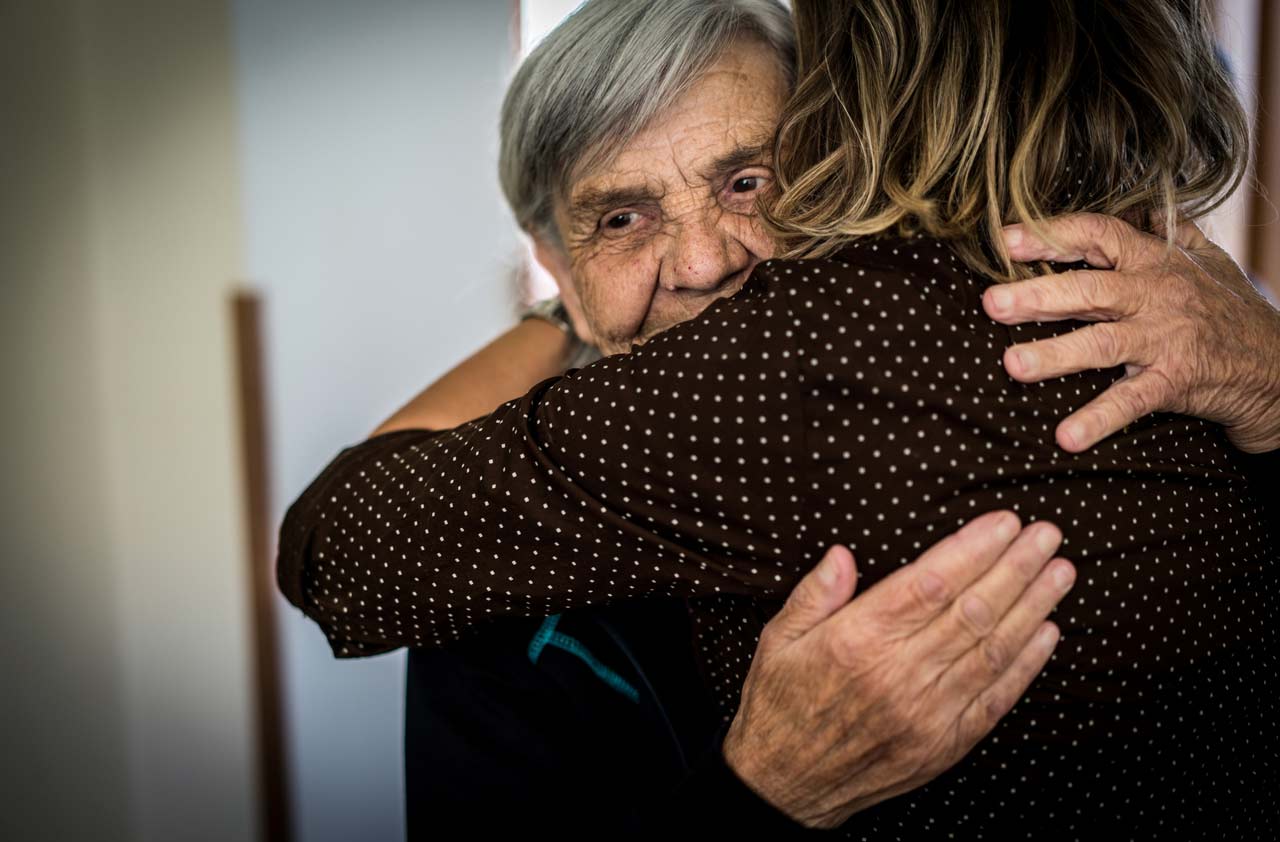Make Time to Help a Caregiver Out (or Just Say Thanks)
Chances are pretty good that you know a caregiver who could use a break. As National Family Caregivers Month winds down, here are some practical ways you can show your support to these very important people.


Profit and prosper with the best of Kiplinger's advice on investing, taxes, retirement, personal finance and much more. Delivered daily. Enter your email in the box and click Sign Me Up.
You are now subscribed
Your newsletter sign-up was successful
Want to add more newsletters?

Delivered daily
Kiplinger Today
Profit and prosper with the best of Kiplinger's advice on investing, taxes, retirement, personal finance and much more delivered daily. Smart money moves start here.

Sent five days a week
Kiplinger A Step Ahead
Get practical help to make better financial decisions in your everyday life, from spending to savings on top deals.

Delivered daily
Kiplinger Closing Bell
Get today's biggest financial and investing headlines delivered to your inbox every day the U.S. stock market is open.

Sent twice a week
Kiplinger Adviser Intel
Financial pros across the country share best practices and fresh tactics to preserve and grow your wealth.

Delivered weekly
Kiplinger Tax Tips
Trim your federal and state tax bills with practical tax-planning and tax-cutting strategies.

Sent twice a week
Kiplinger Retirement Tips
Your twice-a-week guide to planning and enjoying a financially secure and richly rewarding retirement

Sent bimonthly.
Kiplinger Adviser Angle
Insights for advisers, wealth managers and other financial professionals.

Sent twice a week
Kiplinger Investing Weekly
Your twice-a-week roundup of promising stocks, funds, companies and industries you should consider, ones you should avoid, and why.

Sent weekly for six weeks
Kiplinger Invest for Retirement
Your step-by-step six-part series on how to invest for retirement, from devising a successful strategy to exactly which investments to choose.
November is National Family Caregivers Month. This is a time to celebrate the contribution of those volunteer friends and family members who support a loved one with their health or help them manage a disability.
Eric*, 35, is a full-time caretaker to his father who has heart issues, diabetes and dementia. He has five other brothers, but for the most part he is on his own. Some nurses stop by to give his father medicine and other treatment. For Eric, when his brothers offer to take their father out, it means the world to him. Recently one of his siblings even took their dad out to buy new shoes. They were only gone for two hours, but it was two hours when Eric could breathe.
Who Are Caregivers?
More than 65 million people, 29% of the U.S. population, provide care for a chronically ill, disabled or aged family member or friend during any given year and spend an average of 20 hours per week providing care for their loved one, according to the National Alliance for Caregiving. And 13% of family caregivers are providing 40 hours or more of care per week.
From just $107.88 $24.99 for Kiplinger Personal Finance
Become a smarter, better informed investor. Subscribe from just $107.88 $24.99, plus get up to 4 Special Issues

Sign up for Kiplinger’s Free Newsletters
Profit and prosper with the best of expert advice on investing, taxes, retirement, personal finance and more - straight to your e-mail.
Profit and prosper with the best of expert advice - straight to your e-mail.
Caregivers are generous and compassionate people who make sacrifices for others. People in this role have to juggle making decisions regarding health, personal and financial well-being. Stacked on top of the laundry list of duties includes caring for their immediate family. Caregivers are similar to a parent because they have to be a nurse, authority figure and even a companion to those in their care.
Watch Out for Burnout
With no break or appreciation, caregivers may feel burned out and forced to work even when they are not feeling up to it. Caregiver burnout is a state of physical, emotional and mental exhaustion that may be accompanied by a change in attitude.
Peggy*, 56, was taking care of her sister who was in the final stages of cancer. She was emotional trying to come to terms with her sister’s illness and trying to put on a brave face. While she cared for her sister, she began feeling fatigued and irritable. She lashed out at loved ones due to feeling overwhelmed and not fully coping with everything. Eventually, her sister was put in hospice care. Thankfully, she was able to hire an aide to care for her sister while Peggy went to counseling. Peggy needed time to take care of herself in order to be there for her family.
“Burnout can occur when caregivers don't get the help they need, or if they try to do more than they are able — either physically or financially,” according to WebMD.
Many people are guilty of presenteeism, which means they are at work but “out of it” because they are injured, mentally/physically exhausted or sick.
“While many employers have always been aware of costs due to absenteeism, there is now increasing evidence that the presence of ill or medically impaired employees may also result in significant costs to the organization in the form of decreased productivity while at work,” according to the National Center for Biotechnology Information.
A few reasons for burnout or presenteeism include:
- Wanting to be perfect in their job
- Being overwhelmed by having to accomplish a ton of tasks
- Multiple roles such as being a parent, student, caregiver and employee
- Financial pressure (if they miss a shift, they lose out on money)
Additionally, going to work ill also affects the heath of the person who is being cared for.
There are ways to give thanks and make life easier for those who take on the role as caregiver.
Ways to Give Thanks to Caregivers
- Day off: Offer to give a caretaker in the family the day off by offering to watch the person or do chores, such as making the person's food, bathing them or cleaning around the house.
- A note: A thoughtful thank-you note recognizes the hard work someone does to keep a person safe, healthy and happy.
- Donation: Give to a cause the caregiver is involved in, such as dementia or cancer organizations. Donate in their honor to let them know they are special.
- Food: A gift card or home-cooked meal is a great way to say thanks. Many caregivers often put their own needs second. They deserve to relax and enjoy with a coffee and lunch.
- Just say it: Make sure to express gratitude to those who give so generously. Sometimes a simple thank you makes a person feel validated.
People want to be appreciated and respected. Thanksgiving is a time to celebrate family and friends but also to give back to those who give so much.
*True stories, but the names have been changed to respect confidentiality.
Profit and prosper with the best of Kiplinger's advice on investing, taxes, retirement, personal finance and much more. Delivered daily. Enter your email in the box and click Sign Me Up.

Marguerita M. Cheng is the Chief Executive Officer at Blue Ocean Global Wealth. She is a CFP® professional, a Chartered Retirement Planning Counselor℠ and a Retirement Income Certified Professional. She helps educate the public, policymakers and media about the benefits of competent, ethical financial planning.
-
 Dow Leads in Mixed Session on Amgen Earnings: Stock Market Today
Dow Leads in Mixed Session on Amgen Earnings: Stock Market TodayThe rest of Wall Street struggled as Advanced Micro Devices earnings caused a chip-stock sell-off.
-
 How to Watch the 2026 Winter Olympics Without Overpaying
How to Watch the 2026 Winter Olympics Without OverpayingHere’s how to stream the 2026 Winter Olympics live, including low-cost viewing options, Peacock access and ways to catch your favorite athletes and events from anywhere.
-
 Here’s How to Stream the Super Bowl for Less
Here’s How to Stream the Super Bowl for LessWe'll show you the least expensive ways to stream football's biggest event.
-
 How to Add a Pet Trust to Your Estate Plan: Don't Leave Your Best Friend to Chance
How to Add a Pet Trust to Your Estate Plan: Don't Leave Your Best Friend to ChanceAdding a pet trust to your estate plan can ensure your pets are properly looked after when you're no longer able to care for them. This is how to go about it.
-
 Want to Avoid Leaving Chaos in Your Wake? Don't Leave Behind an Outdated Estate Plan
Want to Avoid Leaving Chaos in Your Wake? Don't Leave Behind an Outdated Estate PlanAn outdated or incomplete estate plan could cause confusion for those handling your affairs at a difficult time. This guide highlights what to update and when.
-
 I'm a Financial Adviser: This Is Why I Became an Advocate for Fee-Only Financial Advice
I'm a Financial Adviser: This Is Why I Became an Advocate for Fee-Only Financial AdviceCan financial advisers who earn commissions on product sales give clients the best advice? For one professional, changing track was the clear choice.
-
 65 or Older? Cut Your Tax Bill Before the Clock Runs Out
65 or Older? Cut Your Tax Bill Before the Clock Runs OutThanks to the OBBBA, you may be able to trim your tax bill by as much as $14,000. But you'll need to act soon, as not all of the provisions are permanent.
-
 I'm a Financial Adviser: This Is the $300,000 Social Security Decision Many People Get Wrong
I'm a Financial Adviser: This Is the $300,000 Social Security Decision Many People Get WrongDeciding when to claim Social Security is a complex, high-stakes decision that shouldn't be based on fear or simple break-even math.
-
 4 Ways Washington Could Put Your Retirement at Risk (and How to Prepare)
4 Ways Washington Could Put Your Retirement at Risk (and How to Prepare)Legislative changes, such as shifting tax brackets or altering retirement account rules, could affect your nest egg, so it'd be prudent to prepare. Here's how.
-
 Is Your Retirement Plan Built for 2026 — or Stuck in 2006?
Is Your Retirement Plan Built for 2026 — or Stuck in 2006?It's time to move away from the 4% rule and the 60/40 portfolio to an adaptable, tax-diversified strategy focused on reliable income and longevity.
-
 Filed for Social Security Too Soon? 2 Ways to Get a Do-Over
Filed for Social Security Too Soon? 2 Ways to Get a Do-OverIf you've claimed Social Security too soon, two SSA rules allow a do-over. But be warned: Using them clumsily can lead to surprise repayments or lost benefits.